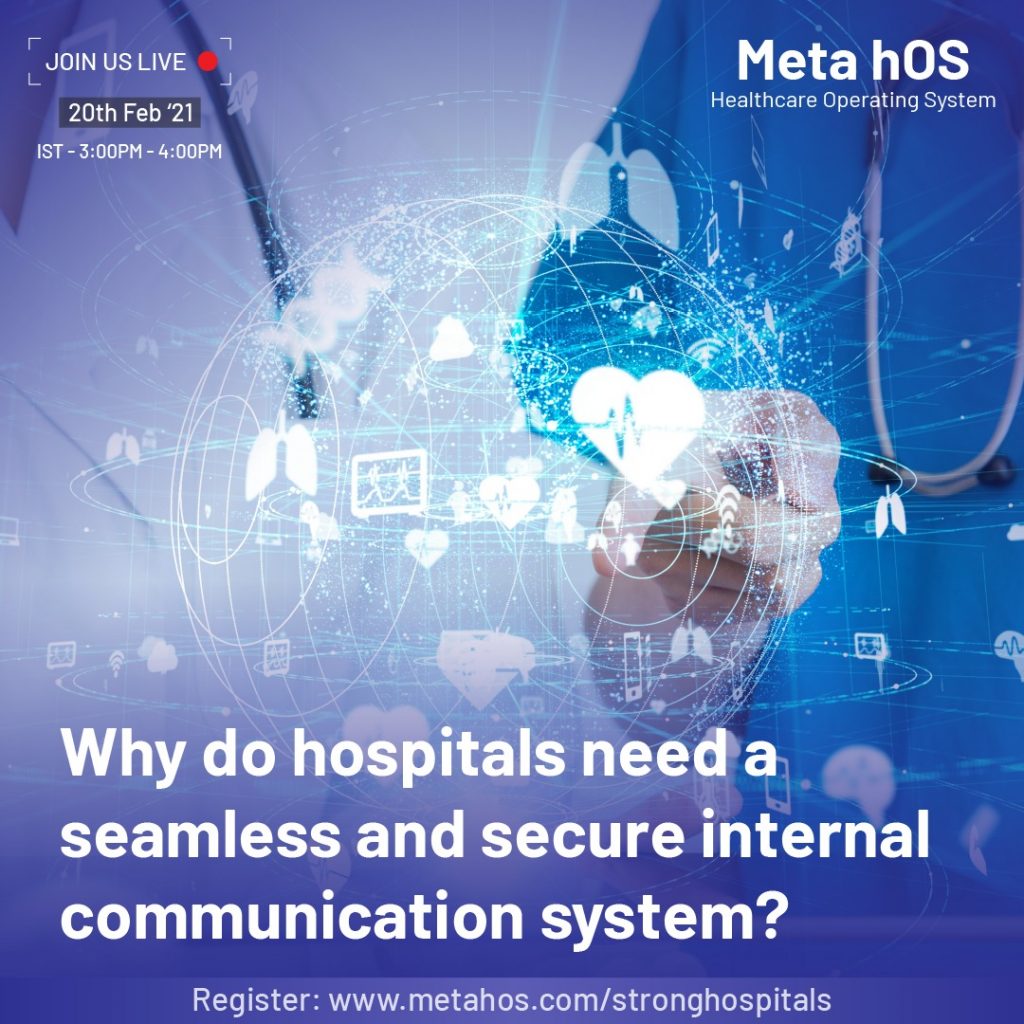
5 Benefits of Better Cybersecurity in Hospitals
5 Benefits of Better Cybersecurity in Hospitals – it sounds clinical, right? But think about it: every click, every scan, every patient record in a hospital is a potential target. Stronger cybersecurity isn’t just about preventing headlines; it’s about safeguarding lives, reputations, and the very fabric of patient care. This post dives into five key benefits that show why investing in robust hospital cybersecurity is a must, not a luxury.
From improving patient safety and operational efficiency to strengthening compliance and boosting staff morale, the advantages are clear. We’ll explore how better cybersecurity translates to tangible improvements across the board, ultimately leading to a more resilient and effective healthcare system. Get ready to see how a proactive approach to cybersecurity can be a game-changer for hospitals.
Improved Patient Care & Safety

Robust cybersecurity in hospitals isn’t just about protecting data; it’s about safeguarding patient lives and improving the quality of care. Strong cybersecurity measures directly impact the accuracy and timeliness of information access, leading to better treatment decisions and safer medical procedures. A well-protected healthcare system fosters trust between patients and providers, ultimately strengthening the overall healthcare experience.
The foundation of effective patient care rests upon the reliable and timely access to accurate patient data. Imagine a scenario where a doctor needs immediate access to a patient’s allergy history during an emergency. A robust cybersecurity system ensures this information is readily available, preventing delays that could compromise the patient’s well-being. Conversely, a system vulnerable to cyberattacks could lead to data loss or inaccessibility, resulting in delayed or incorrect treatments.
Impact of Secure Data Access on Treatment Decisions
Secure access to comprehensive and up-to-date patient information is crucial for making informed treatment decisions. For example, access to a patient’s complete medical history, including allergies, current medications, and previous diagnoses, allows healthcare providers to tailor treatment plans effectively. A breach or a slow, unreliable system could lead to medication errors, adverse drug reactions, or misdiagnosis, directly impacting patient safety and outcome.
Real-time access to electronic health records (EHRs) facilitated by strong cybersecurity enables efficient collaboration among healthcare professionals, leading to better coordinated and more effective care.
Minimizing Medical Device Malfunctions Through Cybersecurity
Modern hospitals rely heavily on interconnected medical devices, from infusion pumps to pacemakers. These devices are increasingly vulnerable to cyberattacks, which can lead to malfunctions with potentially catastrophic consequences. Strong cybersecurity protocols, including regular software updates, robust network security, and access controls, are vital in mitigating this risk. A hospital with inadequate cybersecurity may experience device compromises, leading to inaccurate readings, treatment errors, or even complete device failure.
The Impact of Data Breaches on Patient Trust and Reputation
Data breaches in hospitals can have devastating consequences, extending far beyond the immediate financial costs. The loss of patient data, including sensitive medical information and personal details, can severely erode patient trust and damage the hospital’s reputation. Patients may become hesitant to seek care at a hospital with a history of breaches, fearing further compromise of their privacy.
This loss of trust can significantly impact the hospital’s financial stability and its ability to attract and retain both patients and staff.
Comparison of Data Breach Consequences vs. Cybersecurity Costs
Investing in robust cybersecurity measures is a cost-effective strategy compared to the potential consequences of a data breach. The following table illustrates this point:
| Consequence | Probability | Cost | Mitigation Strategy |
|---|---|---|---|
| Financial penalties (fines, legal fees) | High (depending on regulations and breach severity) | Millions of dollars | Implementing robust data encryption, access controls, and intrusion detection systems. |
| Loss of patient trust and reputation | High | Loss of patients, decreased revenue, difficulty attracting staff | Transparent communication with patients, proactive security measures, and robust incident response plan. |
| Legal liabilities and lawsuits | Medium to High | Millions of dollars in settlements and legal fees | Compliance with data privacy regulations (HIPAA, GDPR), data loss prevention strategies. |
| Operational disruption | Medium | Loss of productivity, downtime costs | Regular system backups, disaster recovery planning, and business continuity strategies. |
| Reputational damage | High | Long-term impact on patient volume and revenue | Proactive communication, swift response to incidents, and commitment to data security. |
Enhanced Operational Efficiency
In today’s fast-paced healthcare environment, operational efficiency is paramount. Streamlined workflows are crucial for providing timely and effective patient care, and robust cybersecurity plays a vital role in achieving this. A secure IT infrastructure directly impacts a hospital’s ability to function smoothly and effectively.Cybersecurity incidents can significantly disrupt hospital operations, leading to delays in patient care, lost revenue, and damage to reputation.
However, proactive cybersecurity measures can minimize these disruptions, leading to significant cost savings and improved operational efficiency. Investing in robust security systems is an investment in the smooth and efficient running of the entire hospital.
Improved Workflow Through Secure Data Access
Secure systems allow authorized personnel to access the information they need quickly and efficiently. Imagine a scenario where a nurse needs immediate access to a patient’s medical history during an emergency. A well-designed, secure system ensures this access is granted without delay, preventing bottlenecks and improving response times. Conversely, a system plagued with security vulnerabilities and requiring cumbersome access protocols would create significant delays, hindering efficient care.
The difference between seamless access and a delayed, frustrating process directly impacts patient outcomes and staff morale. This is especially true in time-sensitive situations like emergency room procedures or intensive care. The speed and ease of access to critical information directly translates to faster treatment and improved patient care.
Cybersecurity Incidents and Operational Disruption
Ransomware attacks, for example, can completely shut down hospital systems, preventing access to electronic health records, scheduling systems, and diagnostic equipment. A recent example is the 2020 ransomware attack on Universal Health Services, which affected multiple hospitals and resulted in significant operational disruptions, including delays in patient care and the cancellation of elective procedures. This resulted in substantial financial losses and a significant negative impact on patient care.
Stronger hospital cybersecurity means better patient data protection, reduced compliance risks, improved operational efficiency, enhanced reputation, and ultimately, saved lives. Developing robust security systems often involves leveraging modern development approaches, like those explored in this article on domino app dev the low code and pro code future , which can help streamline the creation of secure applications. Ultimately, these advancements translate directly back to those crucial 5 benefits for hospitals, making patient care safer and more reliable.
Implementing robust preventative measures, such as regular software updates, employee security training, and multi-factor authentication, significantly reduces the likelihood of such incidents and minimizes downtime. A strong cybersecurity posture minimizes the risk of costly and time-consuming recovery efforts.
Financial Benefits of Preventing Cybersecurity Incidents, 5 benefits of better cybersecurity in hospitals
The financial implications of a major cybersecurity breach can be devastating. Costs associated with recovery, including system restoration, data recovery, and legal fees, can easily reach millions of dollars. Beyond direct costs, reputational damage can lead to decreased patient admissions and lost revenue. For example, a hospital suffering a data breach leading to the exposure of sensitive patient information might face significant fines and legal action, not to mention the erosion of public trust.
Proactive cybersecurity measures, while requiring an upfront investment, are far more cost-effective than dealing with the aftermath of a major breach. Investing in preventative measures ultimately safeguards the hospital’s financial stability and long-term success.
Strengthened Compliance & Legal Protection
In today’s highly regulated healthcare environment, robust cybersecurity is no longer a luxury but a necessity. It’s the cornerstone of protecting patient data, maintaining institutional integrity, and avoiding crippling financial penalties. A strong cybersecurity posture directly translates to compliance with critical regulations and significantly reduces the risk of legal repercussions.Improved cybersecurity directly contributes to a hospital’s ability to meet stringent regulatory requirements like HIPAA (Health Insurance Portability and Accountability Act) in the US, and similar data protection laws internationally.
These laws mandate the protection of Protected Health Information (PHI), encompassing a wide range of sensitive patient data. Failing to comply can lead to severe consequences, far beyond simple fines. A robust cybersecurity framework helps hospitals demonstrate their commitment to data privacy and security, providing a clear audit trail and evidence of compliance during inspections.
HIPAA Compliance and Data Breach Penalties
Non-compliance with HIPAA and similar regulations can result in substantial financial penalties. The Office for Civil Rights (OCR) within the US Department of Health and Human Services (HHS) enforces HIPAA, imposing tiered penalties based on the severity and nature of the violation. These penalties can range from several thousand dollars for minor infractions to millions of dollars for egregious negligence or willful neglect involving large-scale data breaches.
For example, a hospital failing to implement basic security measures, such as strong password policies or employee training, could face significant fines. A data breach exposing thousands of patient records could result in multi-million dollar penalties, coupled with reputational damage and potential lawsuits from affected patients. Beyond monetary penalties, the legal ramifications can include extensive investigations, mandated corrective actions, and even criminal charges in cases of gross negligence or intentional misconduct.
Designing a Comprehensive Cybersecurity Policy
A comprehensive cybersecurity policy is the foundation of a strong security posture. It should be a living document, regularly reviewed and updated to reflect evolving threats and regulatory changes. This policy should clearly define roles and responsibilities for cybersecurity, outlining who is accountable for various aspects of security management. It should also detail procedures for incident response, outlining steps to take in the event of a security breach, including notification protocols for patients and regulatory bodies.
Crucially, the policy should encompass a detailed risk assessment, identifying vulnerabilities and outlining mitigation strategies. This risk assessment should be regularly reviewed and updated to reflect changes in the hospital’s IT infrastructure and the evolving threat landscape. Employee training is another critical component; the policy should mandate regular security awareness training for all staff members to ensure they understand their roles in protecting patient data.
Finally, the policy should include a clear process for vendor management, ensuring that third-party vendors accessing hospital systems meet appropriate security standards. This comprehensive approach demonstrates a commitment to legal and ethical standards, minimizing the risk of non-compliance and data breaches.
Improved Staff Morale & Productivity
A secure digital environment is crucial not only for patient safety and data integrity but also for the well-being and productivity of hospital staff. Constant worry about cyber threats and data breaches creates a stressful and inefficient workplace, impacting morale and overall performance. Investing in robust cybersecurity measures directly translates to a happier, more focused, and ultimately more effective workforce.Effective cybersecurity significantly reduces staff stress and anxiety related to data breaches and cyber threats.
The fear of accidental data exposure, ransomware attacks, or phishing scams can lead to burnout and decreased job satisfaction. A strong cybersecurity infrastructure, combined with comprehensive training, provides a sense of security and control, allowing staff to focus on their core responsibilities without the constant weight of potential security incidents.
Reduced Stress and Anxiety through Enhanced Security
A proactive approach to cybersecurity, involving regular security audits, robust intrusion detection systems, and employee training, minimizes the likelihood of security incidents. This proactive stance reduces the pervasive anxiety and stress associated with the constant threat of data breaches. For example, a hospital that implements multi-factor authentication and strong password policies significantly reduces the risk of unauthorized access, directly impacting staff morale by reducing the fear of compromised accounts and sensitive patient data.
The resulting reduction in stress translates to increased productivity and improved job satisfaction.
Empowered Staff through Effective Cybersecurity Training
Comprehensive cybersecurity training programs are essential for empowering staff and boosting their confidence in handling sensitive data. Training should cover topics such as phishing awareness, password management, data encryption, and incident reporting. Regular refresher courses and simulated phishing attacks help keep staff vigilant and up-to-date on the latest threats. For instance, a hospital that invests in interactive cybersecurity training modules, coupled with regular quizzes and simulations, sees a significant increase in staff awareness and confidence in handling sensitive information.
This confidence translates into improved efficiency and reduced errors.
Increased Productivity through Reduced Time Spent on Security Incidents
Effective cybersecurity measures free up valuable staff time previously spent on dealing with security incidents. A well-protected system minimizes the need for time-consuming incident response, investigation, and remediation. This time can be redirected towards direct patient care, administrative tasks, or professional development activities. Consider a scenario where a hospital experiences a ransomware attack. Robust backups and a swift incident response plan, facilitated by strong cybersecurity protocols, minimize downtime and the time staff spend resolving the issue.
This efficiency gain allows staff to return to their primary responsibilities sooner, boosting productivity and overall hospital operations.
Financial Stability & Resource Optimization

Investing in robust cybersecurity isn’t just about preventing data breaches; it’s a strategic move towards long-term financial stability and efficient resource allocation. A proactive approach to cybersecurity can significantly reduce the risk of costly incidents, ultimately saving hospitals money and protecting their valuable resources. The initial investment in security solutions pales in comparison to the potential financial devastation of a successful cyberattack.A strong cybersecurity infrastructure acts as a shield against various financial threats.
Consider the potential costs associated with a breach: downtime, legal fees, regulatory fines, reputation damage, and the expense of recovering lost data. These costs can quickly escalate into millions of dollars, crippling even the largest healthcare organizations. Conversely, a well-planned cybersecurity strategy, while requiring an upfront investment, acts as insurance against these potentially catastrophic financial losses.
Cost-Benefit Analysis of Cybersecurity Investments
A comprehensive cost-benefit analysis should be undertaken to justify cybersecurity investments. This analysis compares the cost of implementing and maintaining security measures (including software, hardware, training, and personnel) against the potential costs of a cyberattack (data breach response, legal fees, regulatory fines, loss of revenue, and reputational damage). For example, a hypothetical scenario could compare the cost of implementing a multi-factor authentication system ($50,000) against the potential cost of a ransomware attack that could result in a $5 million ransom demand, plus the cost of data recovery and business interruption (potentially reaching tens of millions of dollars).
The clear financial advantage of the preventative measure is undeniable. Many hospitals use such analyses to justify investment to their boards and stakeholders.
Financial Benefits of Improved Cybersecurity
The financial benefits of improved cybersecurity extend beyond simply avoiding the costs of a breach. A strong security posture also leads to:
- Reduced Insurance Premiums: Insurance companies often offer lower premiums to organizations with robust cybersecurity programs in place, demonstrating a lower risk profile. This is a direct financial benefit that reduces ongoing operational costs.
- Improved Investor Confidence: Investors are increasingly scrutinizing a company’s cybersecurity posture before investing. A strong security track record can boost investor confidence, leading to easier access to capital and potentially better investment terms.
- Increased Revenue & Operational Efficiency: Reduced downtime and improved operational efficiency directly translate to increased revenue. A secure system ensures uninterrupted patient care and administrative processes, minimizing lost productivity and potential revenue loss.
- Enhanced Reputation and Brand Trust: A strong cybersecurity reputation builds trust with patients, referring physicians, and the wider community. This can lead to increased patient volume and improved relationships with stakeholders.
Ultimate Conclusion

In short, prioritizing cybersecurity in hospitals isn’t just about protecting data; it’s about protecting people. The benefits extend far beyond preventing breaches; they impact patient care, operational efficiency, legal compliance, staff well-being, and ultimately, the financial stability of the institution. By embracing a robust cybersecurity strategy, hospitals can build a stronger, more resilient future, ensuring better outcomes for everyone involved.
FAQ: 5 Benefits Of Better Cybersecurity In Hospitals
What are the common types of cyberattacks targeting hospitals?
Hospitals are vulnerable to various attacks, including ransomware, phishing scams targeting employees, and denial-of-service attacks disrupting operations. Medical device vulnerabilities are also a growing concern.
How much does a data breach cost a hospital?
The cost varies greatly depending on the size of the breach and the specific circumstances, but it can easily run into millions of dollars, including legal fees, regulatory fines, and reputational damage.
What are some simple steps hospitals can take to improve cybersecurity?
Implementing strong password policies, regular employee security training, and multi-factor authentication are crucial first steps. Keeping software updated and using robust antivirus solutions are also essential.
How can hospitals measure the effectiveness of their cybersecurity program?
Regular security audits, penetration testing, and employee phishing simulations can help assess vulnerabilities and the effectiveness of security measures. Tracking key metrics like incident response times is also important.





